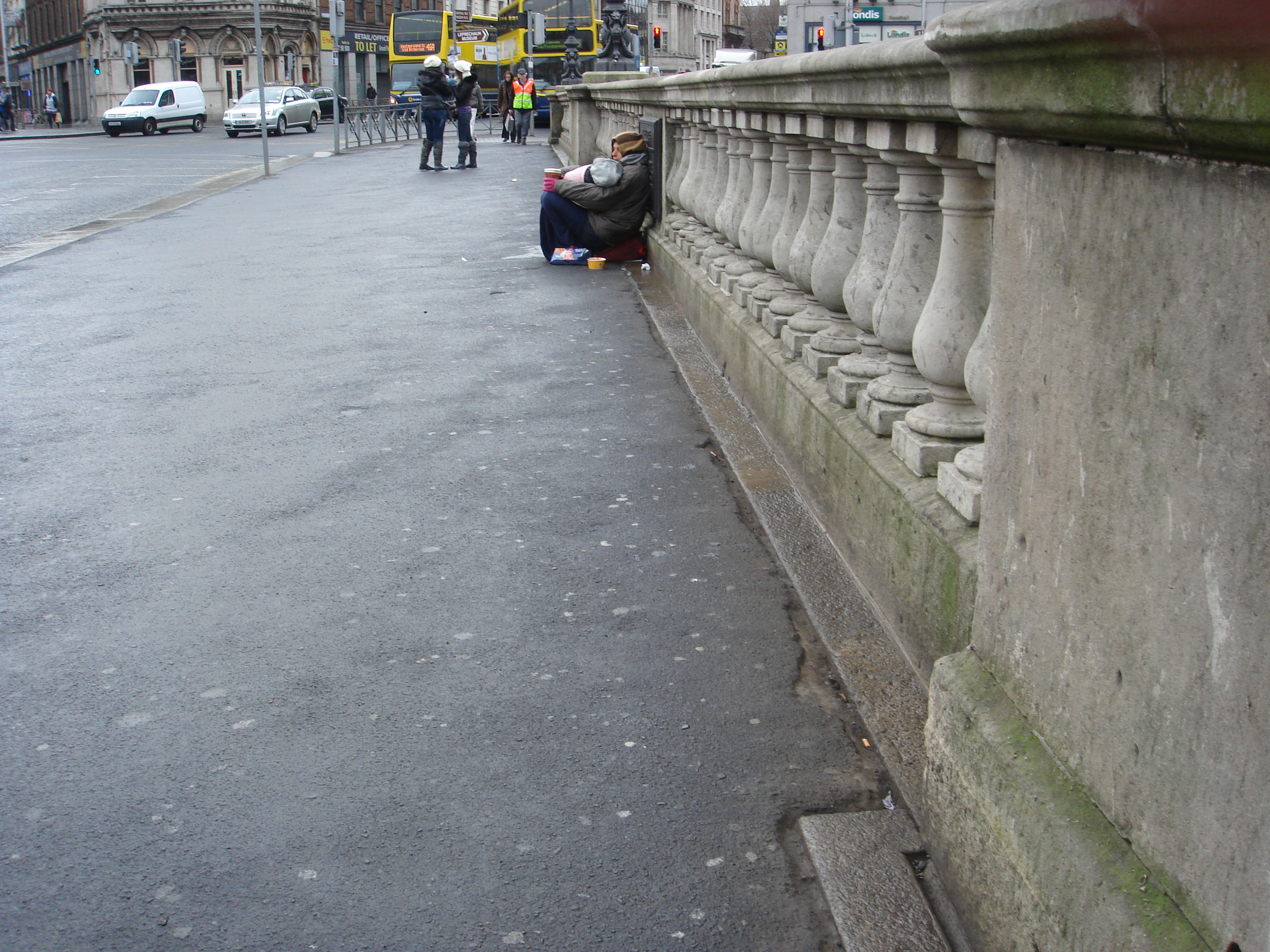Once every two weeks, there is a group of men and women, about 10-20 in total, who meet at St. Newman University Church a few hours after their work. We say hello to each other, greet new visitors, and get started packing bags for the road. One group handles the homemade sandwiches, another prepares flasks of hot drinks, and the last divides up warm clothing for the deepening chill of the Autumn night. This is no camping group though; we are here to visit the homeless and needy on our neighboring streets, to meet those faces for whom we normally can do little but walk past with a smile.
When we are all packed and ready to go, we filter out onto the streets in groups of about 4-5 people. Ireland, and Dublin in particular, has witnessed a rapid growth in the number of homeless people, increasing from an estimated 2,800 in 2014 to around 10,000 in 2019. To accommodate many of these people, there are large scale pop-up food services on the street which attract massive lines of people happy to be fed. Our group does not seek to emulate this service, instead we aim to meet the needs of those who sit on the side of the scene, oftentimes those who are too nervous to insert themselves into such a large group of people.

As we walk throughout downtown, if we find someone who is awake and willing to converse, we ask them if they would like some tea/coffee and kneel down next to them to introduce ourselves. If a person doesn’t want company, we politely move on and wish them well, but oftentimes we meet someone who is grateful for the sudden company of a few young people who want to know how they are doing and whatever else is on their mind. Some extra special interactions have occurred when one of our members surprises a foreign homeless person by speaking their native language, and in some cases this is the first long-form conversation they have had in weeks.
All in all though, we do not pretend to be the solution to anyone’s ‘problem.’ We can offer them advice and a resource sheet on homeless services, give them a shoulder to lean on, and let them know that we will pray for them that evening, as we always do, but above all we know that what we offer is a small sign of solidarity with anyone who feels lost and confused. Yet to be frank and perhaps a bit selfish, this is as much a grace to the volunteers as we are told it is to these people, for once in a while we can share a moment of genuine interaction with someone neither of us would have expected to meet.

I tell you about this group not because I wish to signal how wonderful all of us volunteers are for performing such a selfless act, for that would merely be a “performance” and not a true service of Love. Rather, I tell you this story because this group of men and women from various backgrounds and with varied relationships to the Catholic Church sits proudly at the center of an issue that affects nearly every Catholic I know: that is the division of our faith into different camps of priorities where for some reason we tend to value one collection of duties at the expense of another, rather than seeking to represent all of them.

The Capuchin Day Centre.
To call a spade a spade, but with the trepidation of losing your attention by generalizing too much (so bear with me here), it seems fair to say that most Catholics identify this division as the split between ‘pro-life Catholics’ and ‘social justice Catholics.’ For myself and many of my younger peers, this is a division of what ought to be a wholistic Catholic identity, a faith that recognizes and acts upon all forms of suffering and injustice in our world.
I do not wish to ignore the efforts of those who have been so dedicated to both of these issues, but I also want to invite everyone into a form of Catholic life that does not hide from the activism that ‘the other side’ values just because of the political trappings we often associate with such causes. Recognizing our impoverished neighbors as our spiritual brothers and sisters and caring for the defenseless ought not to be contingent upon which group of Catholics we associate with the most.

To return to the story I told you at the start of this blog, though, one of the reasons I love the work of St. Newman Church’s homeless service is because it sits right at the middle of this vague divide and seems to be slowly stitching these two identities back together. We are nothing more than a small, infrequent gathering of people, but we provide a space where people from diverse experiences of the Church and faith in general can work on putting our call to Love into concrete action. This event is only one part of the many forms of prayer, liturgy, service, and education that our church aims to offer, but in a small way it holds the door open for people to experience the manifold joys and duties of the Catholic faith.

